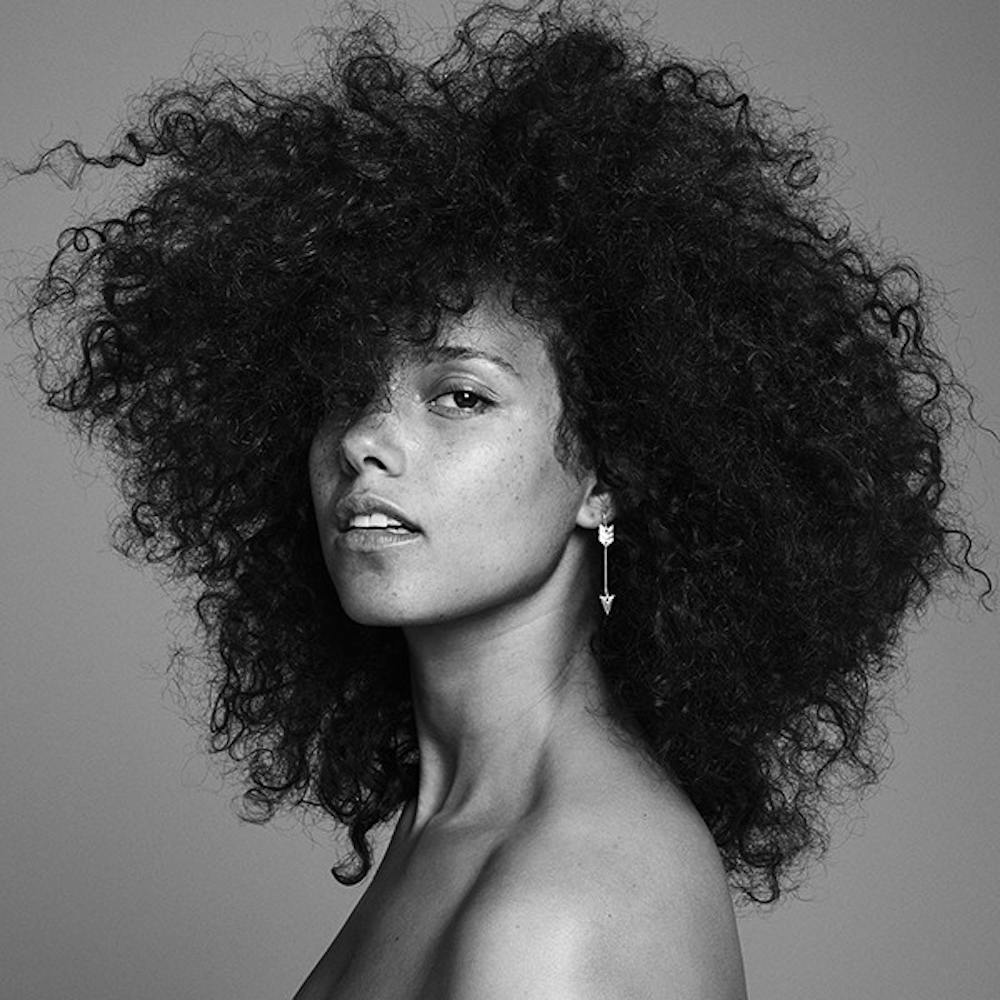Album: "Here"
Released: Nov. 4
Label: RCA Records
Rating: A
The pop artist Alicia Keys has left her contemporary melodies for a lyric and beat so present, so real, it may transcend what’s current and instead give new insight into what’s relevant. The meaning of the music in Alicia Keys' newest album "Here" places an audible mark on history with its rich, extremely personal lyrics and beat.
Overflowing with intimate accounts of life, Keys presents a view of her African-American heritage in a way so representative of who she is, it seems as if you’re listening in on a conversation at home, that you are there at a family reunion or are a part of her family yourself. In a raw, beautiful, artistic fashion, Keys lays out what her life looks like from the inside.
In a unique choice for the album, Keys features interludes that give insight into personal conversations: people talking, laughing, making memories, discussing problems. These interludes are highly emotional and salient and add an inspirational element to Keys' album.
Keys goes back to her roots with every element of the album, especially the cover art of her album. Bare skin from shoulders up, hair natural, facial expression open, raw, relaxed, Keys exposes herself emotionally in the picture as well as in her album. The black and white composition of the cover art resembles the emphasis on the basics of her life, her identity and what it means to be African-American and proud of it.
The artist lays bare her identity, history and past in a way she has never done before in the 15 years since her first album release, and the result is astounding. Listening to the 45-minute album, you can’t help but feel as if you might be intruding into her diary, as if a fly on the wall of her life history. Keys emphasizes themes of rising from the “ghetto university” and the struggles of her childhood with poetic lyrics. The album flows as if a conversational story of her growth from childhood to her present problems. Her voice is filled with more emotion and realness than she’s ever before released to the public, calling herself a “musical to the project fables” in the opening track, "The Beginning."
In this track, Keys gives the audience insight into the microcosm that developed the purpose for her album. With her repeated themes on the “history of the turntables,” she shows that she is walking us not only through the history of her life and development as a musical artist, but into the development of her identity.
Her acoustic focus and bare percussion instrumentals are reminiscent of 1920s jazz bornin Harlem, or blues from Southern plantations. These influences again add to the album’s symbolization of not only her history but also the history of the struggles of all African-Americans to be unashamedly proud of their heritage and identity.
Keys’ album seems not only to relate to her history, but also reflect current issues including homosexuality, as in "Where Do We Begin Now" and the institutionalized poverty cycle in the track "Pawn It All." It is as if the artist is soul-searching and pondering the issues that make up today’s world in the same breath.
"Blended Family (What You Do For Love)" might be one of the deepest and realest tracks of the album. Keys' duet with A$AP Rocky, and the harmony the two create fosters a melodious blend of rhythm and reality. In this song, Keys tries to speak into the hearts of those with blended family situations using her own personal background. She brings her experience from the relationship she has with her husband’s ex-wife while bringing up her children to create a dimension of unmistakably emotional-laden R&B.
Perhaps one of the most impactful and pondering albums of the year, "Here" brings tracks into the pop genre that shed light on the personal side of issues including race, poverty, family relationships and homosexuality, among others. Keys reveals a side of music that is rarely so genuinely exposed, especially by a pop artist like herself: She puts a part of herself into each and every track. Listening to the album is perhaps less about enjoying the beat as it is about the experience of reflection, insight and messages about African-American culture and life.

